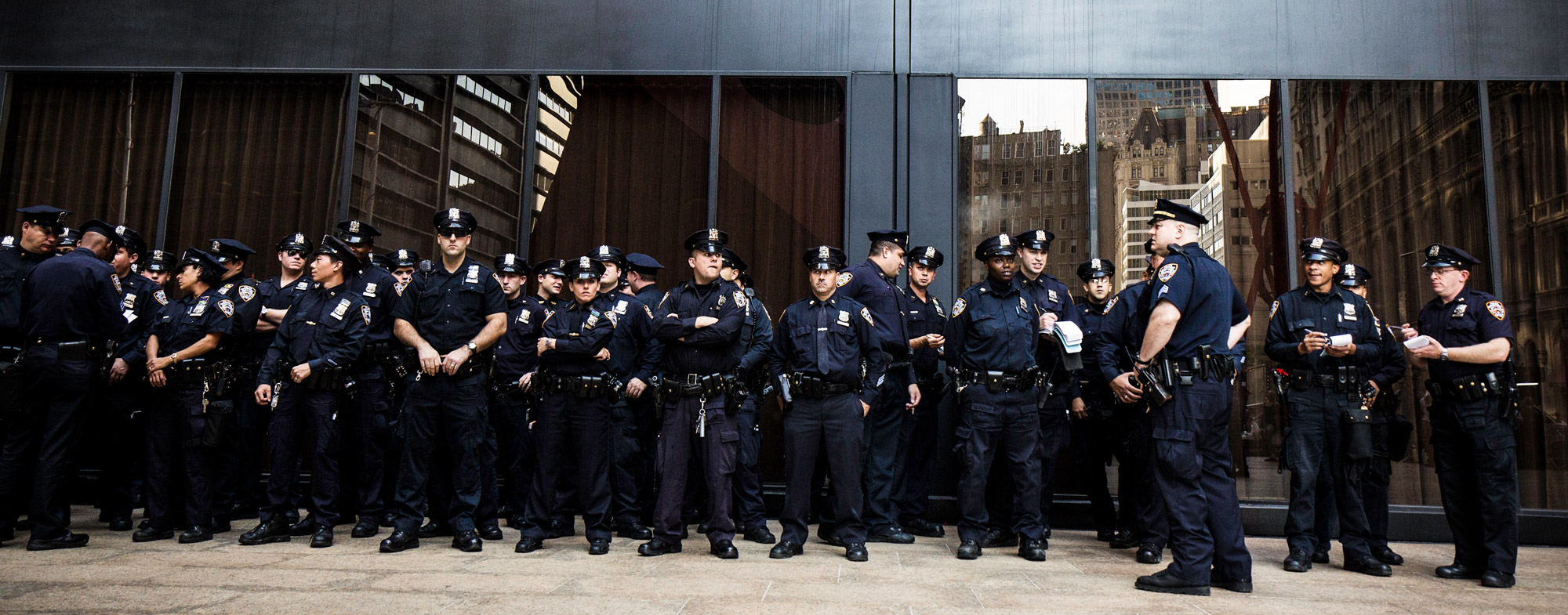So, You Wanna Be A Cop?
I was about a week out of the academy the first time I’d heard two cops talking blithely about some of the heavier aspects of our business.
“What happened on that call with the baby?” My Field Training Officer asked the other officer at the table.
“The grandmother called it in when she picked the kid up from the mother’s,” the other officer said. “He was badly burned on two-thirds of his body, had to rush him to the hospital. The mom tried telling some bullshit story about how they’d gone camping this weekend and the baby fell into the campfire. Turns out the boyfriend purposely dumped the kid in scalding hot water. Probably not gonna make it.
“Pass the salt.”
They continued eating and talking as nonchalantly as if they were discussing a baseball game. I, on the other hand, was nowhere close to being able to be blasé about such horrors.
But, in short enough time, I would see dead children, violent deaths and mourning families. I would be going into other people’s shockingly destitute homes and dealing with broken families who have been living this same pattern of life for generations.
The academy can’t really prepare you for the streets. The instructors can tell you about it, they can show you videos and pictures, they can put you through controlled training scenarios, they try their best to get you ready. But the one thing they can’t get you prepared for is the emotional impact these things have in real life.
As I progressed through my career, I learned how to compartmentalize and detach, and, in turn, how to become just like those senior officers I ate with so early on in my career. In order to effectively operate in the environments police are so regularly placed in, that disconnection from the people involved in them is essential. That’s the only option. If you take in every piece of misery and despair you come into contact with, the streets will eat you up and spit you out in no time.
Detachment is necessary for survival. It’s also as slippery a slope as there is. Detach too much you become cynical. The world becomes a dark and terrible place all of the time. You will carry that cynicism to every call and then wonder why everyone you come into contact with is so dumb, so pathetic, or such a sucker. You barely notice that soon you’ll only really only relate to other First Responders or people who have seen the same amount of death and tragedy. You probably won’t even notice yourself falling into the “us versus them” mentality that is not at all dissimilar from that in military culture. That many LEOs are former military guys and gals, that we carry weapons and wear body armor to work, and that the tactics we use at home were honed overseas make this connection all the more prevalent.
However, there will always be one significant difference that separates the military and the police: we’re not fighting our enemies.
These are our communities, thus it’s not “us vs. them.” We as police are a part of the community and they are the community we serve.
Sure, I’ve worked in a few neighborhoods that more closely resemble Third World countries than the idyll in which I grew up. However, regardless of my or your opinions on the neighborhood or the people in it, they are part of the community and we are there to serve and protect them.

Are there shitbags that are part of any community? Yes. Is it our job is to keep the community safe from the shitbags? Of course. However, the shitbags are only a small portion of any community.
True evil certainly exists in this world. I’ve seen it firsthand. But it’s exceptionally rare. The vast majority of arrests in my career can be boiled down to ignorance, intoxication, or a combination of both. Many were people who came from very low socio-economic backgrounds and had little or very poor educations. Many were people who chose to either cheat, steal or rob, or to smoke, drink or inject their way out of the current existence. Most of them weren’t really bad people or at least they didn’t start out that way.
But what about the shitbags? As I said, small portions of the community are in fact shitbags. They prey on their fellows, commit violence, will steal and rob with little to no sympathy for their victims. Are they driven by greed or did they take the easy way out of their bad environment and found they enjoyed it? More importantly, can they be rehabilitated and become productive members of society? Some, yes. Some, no.
Do not be confused, I believe that without men and women standing ready to “hold the line” to enforce the law, to go after criminals and those that target the weak, that society would fall into anarchy. We will always need those who are willing to stand up to those that would harm others, those that would scam and betray others, those who will always choose to prey on those they believe they can.
I will be the first to admit that I did not start off on the streets with this mentality. I wanted to catch bad guys and I loved the thrill of slapping cuffs on shitbags. I wanted to get into foot chases, car chases and put hands on them. I still do. However, over a decade on, I’ve seen too many officers ruin promising careers by getting caught up in the “us vs. them” mentality. I’ve seen too many good officers become jaded and cynical assholes, myself included.
This is not a “Hug-A-Thug” article and not meant to be dismissive of criminal actions, habitual offenders or especially violent criminal actions. People need to be held accountable for their actions and decisions.
However, that does not mean that there is no room for understanding. Compassion and discretion are two vital tools for cops that do not have holsters on an officer’s gun belt. Lord knows we need good people who are willing to step up and sign on to wear that badge and carry a gun, but this profession is not for everyone. It’s a dangerous one in many ways, just make sure you know what you’re getting into.





